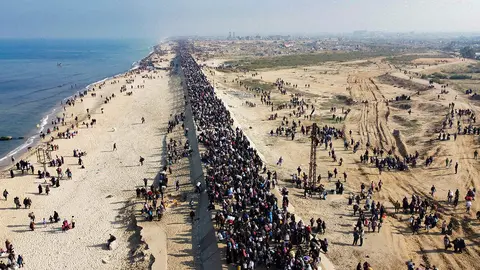Israel resumes military offensive against Hamas in Gaza
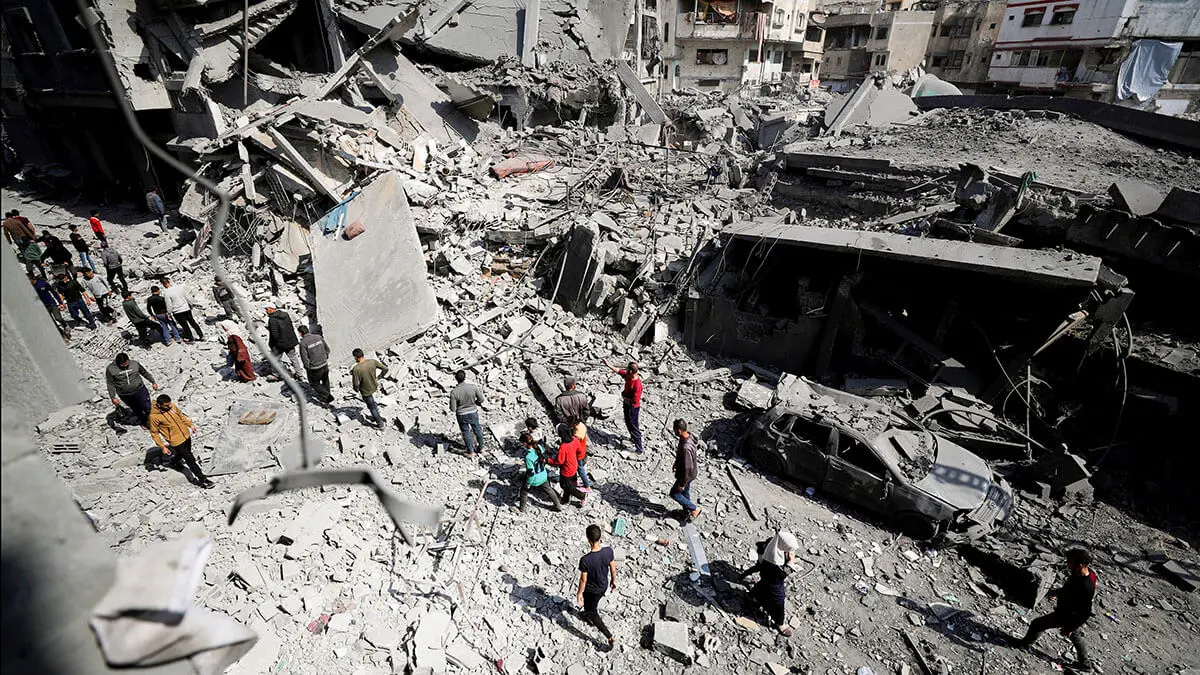
The war returns to the Gaza Strip after a new Israeli air offensive, marking the end of the fragile ceasefire between Hamas and Israel, which officially ended at the beginning of this month. Prime Minister Benjamin Netanyahu ordered the army to take action against Hamas in response to the Palestinian group's refusal to release hostages and its rejection of all ceasefire proposals. ‘Israel will now act against Hamas with greater military force,’ the Prime Minister's office said in a statement.
For his part, Defence Minister Israel Katz warned that the new attacks represented the ‘gates of hell’ being opened up on Hamas following the terrorist organisation's refusal to release the hostages.
The recent air offensive was launched as a surprise attack after the Israel Defense Forces (IDF) identified and gathered hundreds of targets during the two-month truce, while more than 20,000 Hamas and Islamic Jihad fighters returned to their positions along the Strip.
The decision to resume the attacks was taken after the detection of ‘an unusual event’ that could indicate Hamas's preparations for an incursion. In addition, there was an increase in the group's attacks on troops in Gaza and communities across the border. According to the authorities, Hamas was rebuilding its military force and rearming.
The new Israeli air strikes have left more than 300 people dead in Gaza, according to figures from the Ministry of Health, which is controlled by Hamas. The dead include senior members of the terrorist group, such as Mahmoud Abu Watfa, director general of the Ministry of the Interior, who was in charge of the Hamas police force.
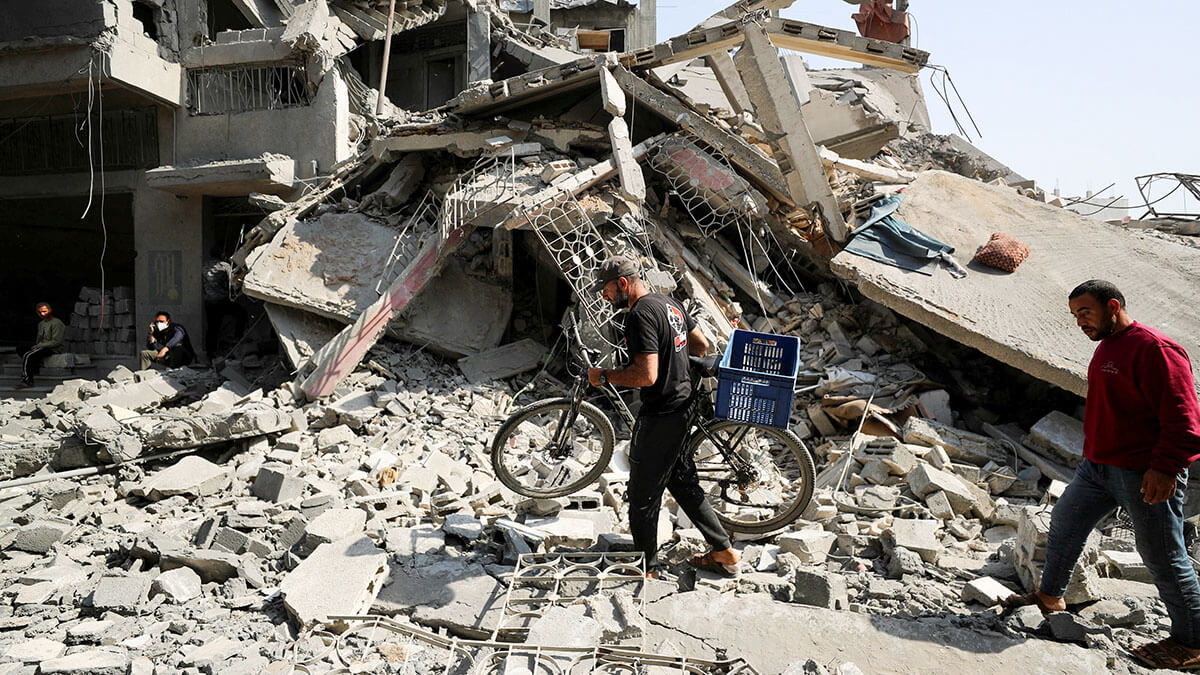
The attacks also targeted two members of Hamas‘ political bureau, Issam Aldialis and Mohammad Al-Jmasi, the group's internal security commander and director general of the Ministry of Justice. According to Ynet, these senior officials played a key role in restoring Hamas’ control over the Strip after the fighting ceased and the ceasefire came into effect.
In addition to senior Hamas officials, the targets of the attacks included tunnels and weapons storage facilities, according to the IDF.
Among the reported Hamas members killed by Israeli airstrikes tonight on Gaza are Undersecretary of the Ministry of Interior and National Security; Major General Mahmoud Abu Watfa and Director General of the Security and Protection Service Brigadier General Bahjat Abu Sultan. pic.twitter.com/oAwsq3A8WR
— Joe Truzman (@JoeTruzman) March 18, 2025
After the attacks - which had been coordinated with the United States - the terrorist organisation accused Israel of unilaterally revoking the ceasefire agreement and urged the Arab League to support the Palestinian resistance. Hamas also demanded that the UN Security Council meet urgently and force Israel to stop the war.
‘Israel has decided to give up the hostages’
The recent Israeli attacks have intensified fears for the future of the 59 hostages who are still being held in Gaza. In a statement, the families of the hostages said they were ‘outraged by the government's decision to suspend efforts to secure the release of the hostages’.
‘Israel has decided to give up on the hostages,’ they lamented, asserting that ’resuming the fighting before freeing the last hostage will only increase the cost of freeing the remaining hostages who could still be saved.’
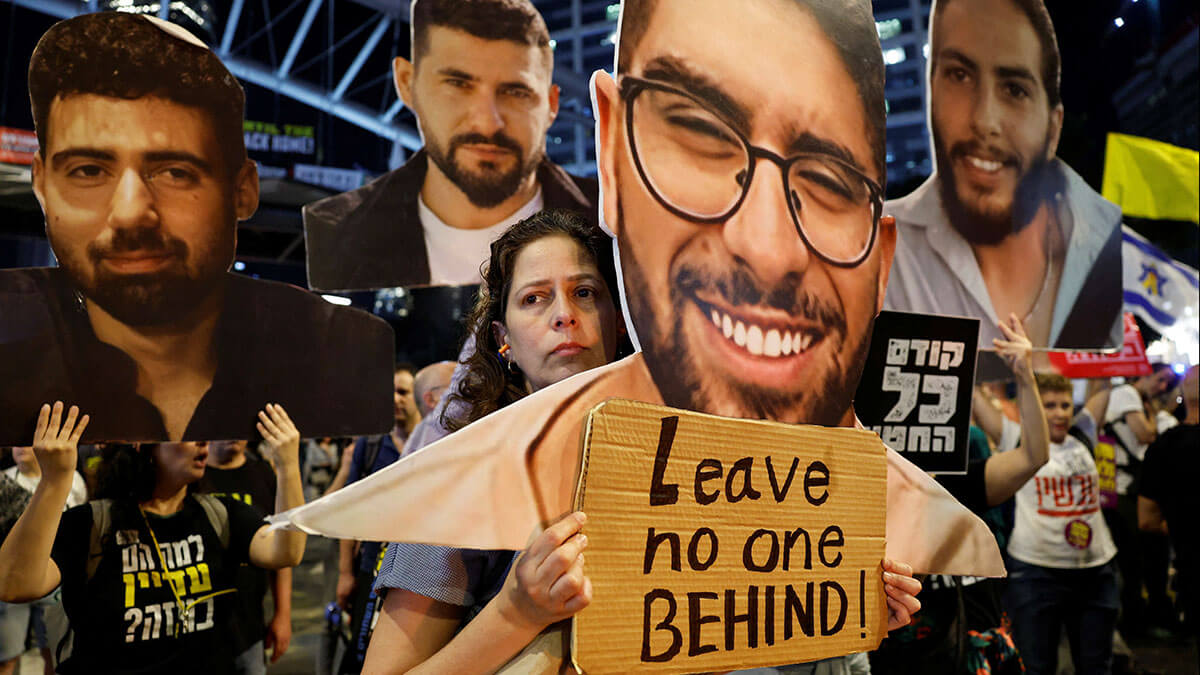
On the other hand, the Tikva Forum (hope in Hebrew), a right-wing alternative to the main hostage defence group, has demanded the return of all remaining hostages held by Hamas or the resumption of ‘massive’ pressure from the Israel Defence Forces on the terrorist group.
‘Only massive military pressure, a total blockade including cutting off electricity and water, and the occupation of territories will lead to the collapse of Hamas, making them beg for a ceasefire and an agreement that returns all the hostages together, in one go,’ the organisation said in a statement.
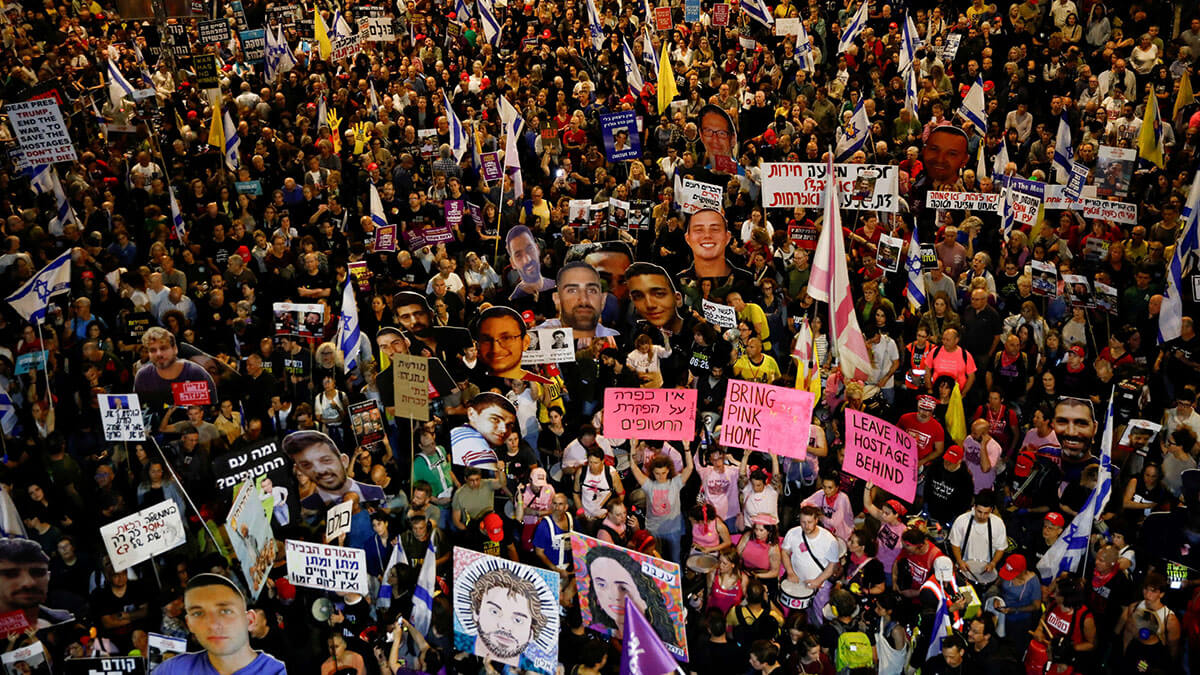
Israel has assured that the offensive will continue, and so the IDF has warned the inhabitants of Gaza to evacuate the areas close to the border with Israel. ‘These specific areas are considered dangerous combat zones. For your safety, you must immediately evacuate the known shelters in the west of Gaza City and Khan Yunis. Remaining in the designated areas endangers their lives and those of their families,’ announced the Israeli army's Arab spokesman.
On the other hand, the Israeli authorities have recommended that the population prepare shelters throughout the country after the resumption of the war in Gaza. For the time being, schools in border communities have been ordered to close and train services between the southern cities of Ashkelon and Sederot have been suspended.
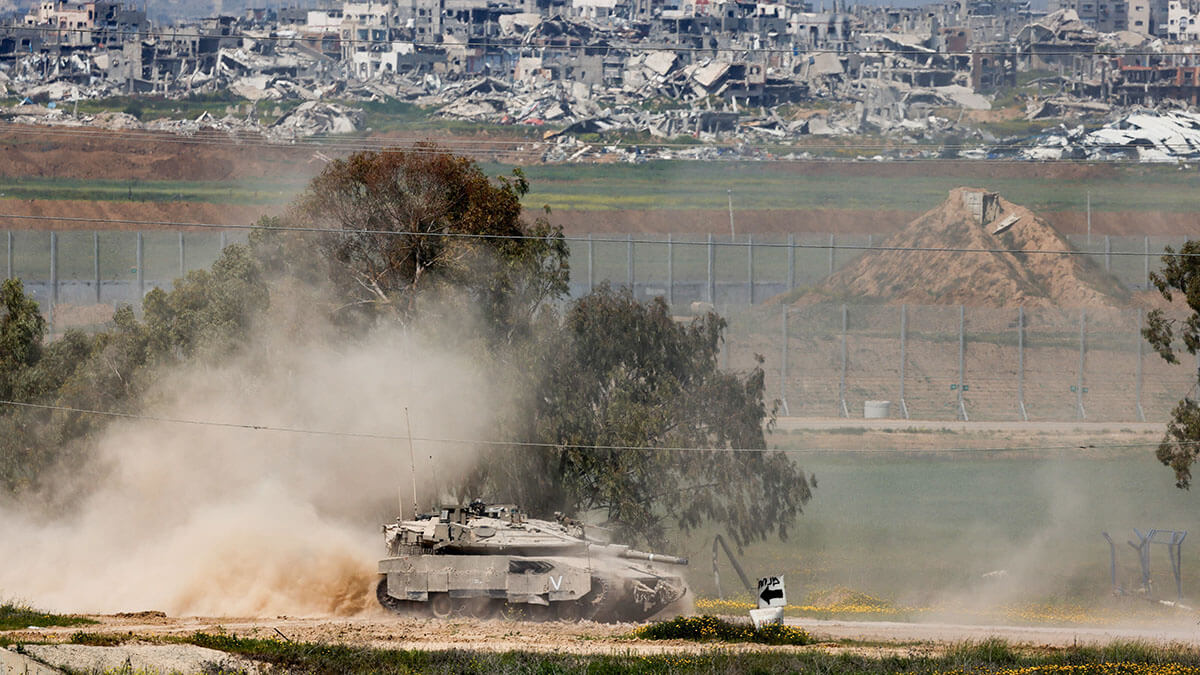
Increased regional tension
The return of the war in Gaza coincides with increased tension throughout the Middle East due to recent US attacks on the Houthis in Yemen. Following the weekend operation, President Donald Trump has ordered a new offensive against the terrorist group, backed by the Islamic Republic of Iran.
Washington has decided to launch this operation against the Houthi rebels because of their terrorist activities in the Red Sea. From November 2023 to January this year, the Houthis have attacked more than 100 merchant ships with missiles and drones, sinking two ships, killing four sailors and putting global trade at risk.
BREAKING: The United States Air Force has destroyed the Houthi government office in Yemen.
— Eyal Yakoby (@EYakoby) March 17, 2025
This comes after the Houthis shot hundreds of missiles and drones at U.S. forces and commercial ships. pic.twitter.com/sXF7FbGDBU
In addition to the Houthis, Trump has threatened Iran, the main backer of the terrorist organisation. In this sense, the US leader warned Tehran that it will face ‘dire’ consequences if the Houthis continue to attack international shipping lanes. Trump said that Iranian leaders would be held responsible for ‘every shot’ fired by the Yemeni rebels.
Although the Iranian regime has tried to disassociate itself from the Houthis, Iran's armed forces are on high alert, prepared for a ‘large-scale defence and a severe counterattack,’ according to Nournews.

